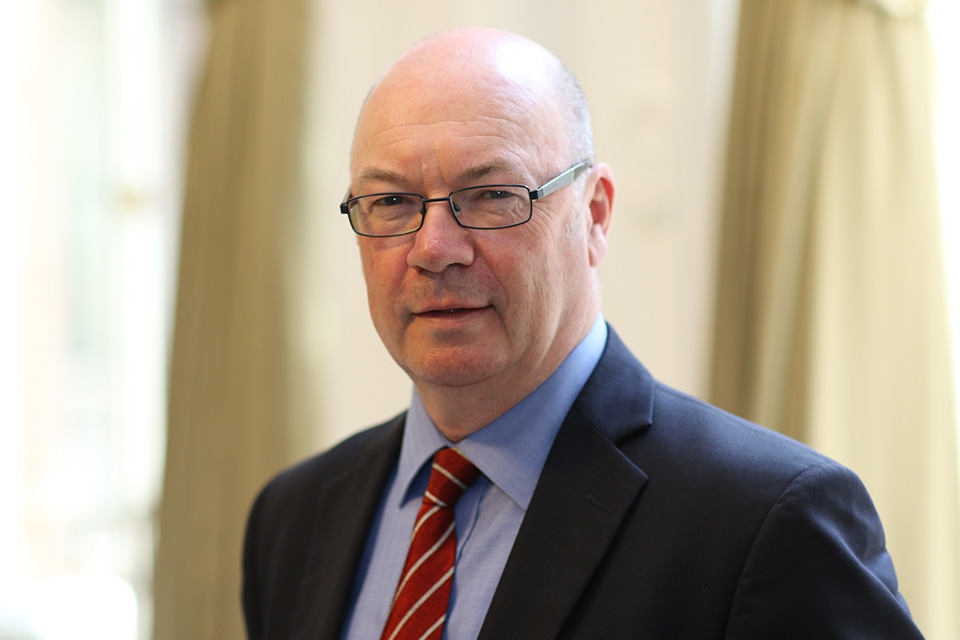Alistair Burt discusses the UK's nuclear stockpile on the BBC
Foreign Office Minister Alistair Burt discussed the Foreign Secretary's announcement on the total size of the UK's nuclear arsenal on the BBC News Channel.

Tim Willcox, presenter: The Foreign Secretary, William Hague, has announced that the Government will for the first time reveal the maximum number of nuclear warheads the UK has in its stockpile. He told MPs the number wouldn’t exceed 225. Mr Hague said the disclosure wouldn’t threaten Britain’s security but would set an example to other countries.
Let’s get more on this now with Alistair Burt, Parliamentary Under Secretary of State at the Foreign Office, who joins us now from New York where he’s been attending a conference on nuclear non-proliferation. Good evening to you. Why now?
Alistair Burt, Parliamentary Under Secretary of State, Foreign and Commonwealth Office: Hello. This was the very first opportunity that we had to make the announcement, and of course it is very carefully timed to be involved with the process of the non-proliferation treaty review conference which is going on here. That whole treaty depends on a great deal of confidence and transparency; it’s a bargain between those nations who have nuclear weapons and those nations who do not. And in keeping with the openness and transparency that we want to see, the Foreign Secretary has made this announcement both about the number of weapons which we possess and also in relation to the declaratory policy of how we will use them. And we want to use this announcement to encourage the parties who are engaged in the negotiations at this review conference to feel confident to go on and to make the agreement that we all want to see.
TW: What about the previous principle, though, of calculated ambiguity, uncertainty; not letting other states know precisely what strength you had as a good deterrent?
AB: I don’t think there’s any change to that. If you look carefully at what’s being said, we’re saying that there are no more than 225 nuclear warheads altogether, and we’ve said that up to 160 are operationally active, and that is no change on the past. Equally, having a look at the declaratory policy doesn’t change the general understanding of a position of ambiguity, which is to ensure that no aggressor can be absolutely certain of response, because the point of a
deterrent is to make sure that no one should consider being an aggressor against you, and I don’t think the openness and transparency that
we’ve got is in conflict with the principle of ambiguity about numbers or use.
TW: So OK, well just help me with this, then: if 160 are declared operationally available, the other 65…
AB: Yes.
TW: …what are they?
AB: Well, it’s a little bit like having, you know, your nuclear submarines and they’re not all on operational standby at the same time. The same is true with nuclear warheads: they’re not all operationally active at the same time. There’s maintenance, there’s keeping them up to date. These are highly complex weapons; these are not capable of simple or quick adjustment. And what we’ve said is very clear: there are up to 160 operational at any one time, that is the
level of operational capability. But of course, there are a number more on the side which are going through the technological changes that I’ve just mentioned, but we have declared how many there are of those so that people are aware of in total what our stockpile consists of, but we have made it very clear which are operationally active and which are not.
TW: OK, what does this mean for the Aldermaston Atomic Weapons Establishment? Will new warheads be developed there?
AB: I think our commitment is to make sure that we have an effective nuclear deterrent. We’ve said what we’ve said in relation to the numbers of weapons that are currently available. But of course in the Strategic Defence Review that’s going to take place, all aspects of Britain’s defences are going to be carefully looked at, and I think any questions about the future of Aldermaston and the preparation of weapons can be kept until then. I don’t think there’s any change
presaged by the announcement today.
TW: OK, it’s just that President Obama, of course, said that the United States wouldn’t manufacture any new nuclear warheads, and I just wondered if that was Britain’s position now or is that something which is yet to be decided?
Right, Alistair Burt, I’m sorry we seem to have lost you there.
Alistair Burt, Parliamentary Under Secretary of State at the Foreign Office there in New York.